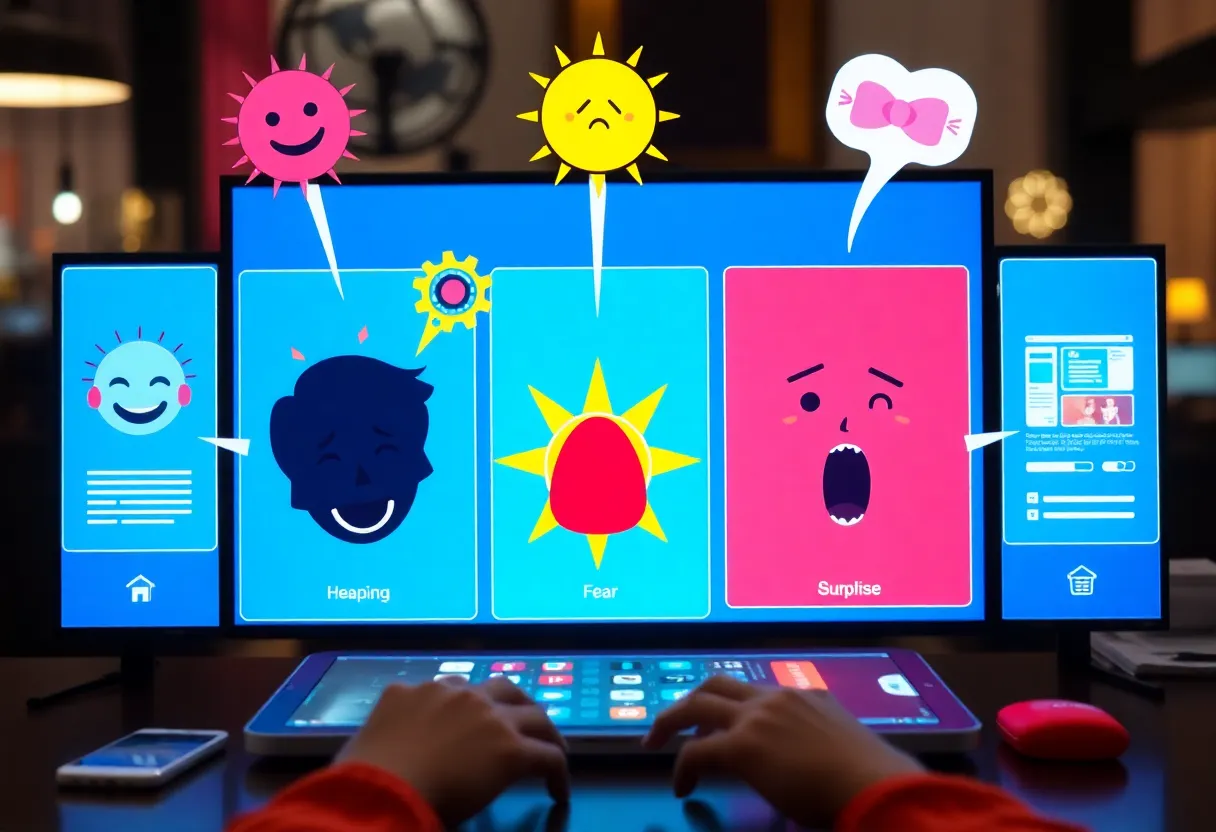News Summary
In South Carolina, educators are increasingly adopting artificial intelligence tools to enhance classroom learning. A recent study revealed that 60% of teachers utilized AI during the school year, viewing it as a modern educational resource. Initiatives like the Presidential AI Challenge and significant investments from tech companies aim to empower teachers and address community issues. However, concerns over cheating, equitable access, and mental health implications persist, prompting some states to develop guidelines for AI usage in schools. The integration of AI intends to prepare students for a future where technology plays a pivotal role.
South Carolina is witnessing a major shift in how educators approach technology in classrooms, with a significant number of teachers embracing artificial intelligence (AI) tools to enhance education. This transition comes amid concerns regarding potential risks such as cheating, equitable access, and mental health implications for students.
According to a recent study by the Walton Family Foundation and Gallup, 60% of teachers reported using AI tools for educational purposes during the 2024-2025 school year. This adoption reflects a broader trend where educators see AI as a resource akin to a “new encyclopedia,” as described by eighth-grade teacher Ludrick Cooper from South Carolina. AI technologies are being implemented in various ways to engage students and provide tailored learning experiences, including initiatives that allow teachers to assign interactive lessons and track student progress.
In an effort to further this educational revolution, First Lady Melania Trump announced the Presidential AI Challenge, inviting K-12 students to leverage AI in addressing local community issues. In parallel to this initiative, OpenAI launched a “study mode” for ChatGPT and has partnered with Instructure, a platform that currently serves millions of students, to enhance educational delivery through AI.
Additionally, major companies like OpenAI, Microsoft, and Anthropic have invested around $23 million to facilitate AI training for approximately 400,000 K-12 teachers in collaboration with teachers’ unions. This investment is intended to empower educators to utilize AI effectively and responsibly in their teaching practices.
AI integration in classrooms offers many potential benefits, such as more engaging lessons and easier access to information. However, experts have raised alarms about the associated risks. Concerns include cheating, disparities in education quality, and mental health challenges that may arise from AI use in learning. For instance, there are worries that as students increasingly rely on AI tools for assistance, genuine learning experiences may suffer.
The New York City Education Department initially banned ChatGPT to prevent academic dishonesty, but later reversed its decision and recognized the educational value of the technology. Instructure’s LLM-Assignment tool was introduced as a means to promote accountability and authentic learning, aiming to balance AI’s engagement with student interests.
As the debate over AI in education grows, voices within the field like Matthew Rascoff from Stanford highlight the importance of social learning over individualized assistance. Tools designed to support students with disabilities, such as talk-to-text and text-to-speech functionalities, have gained attention for their potential to improve accessibility in the classroom; however, questions about the effectiveness of these tools for all students remain.
Disparities in access to AI resources also raise significant concerns. High-poverty school districts often report fewer training opportunities compared to wealthier areas. A study from Kansas State University indicated that these disparities could further widen educational gaps. Some educators express skepticism about AI’s role in the classroom, claiming that it could detract from a student’s ability to engage in personal analysis and genuine learning experiences.
In response to the increasing presence of AI in education, over half of U.S. states are formulating guidelines for its deployment in K-12 environments. Notable states such as North Carolina and Georgia have already established frameworks to ensure ethical utilization of AI, while South Carolina has not yet made significant strides in this area. Educators within the state have voiced concerns about the lack of legislative action toward providing necessary guidance, particularly in light of fears of academic dishonesty fueled by AI tools.
In a notable move aimed at leveraging AI for educational advancements, South Carolina’s largest university system has entered into a $1.5 million agreement with OpenAI. This initiative is designed to provide free AI tools, including ChatGPT Enterprise, to students and faculty, while also enhancing cybersecurity for sensitive data used in AI applications.
Alongside these developments, institutions like the University of Southern California are focusing on educating students on the ethical use of AI and exploring ways to enhance administrative efficiency and classroom learning through this technology.
As AI becomes a fixture in both classroom settings and the workforce, educators are increasingly tasked with preparing students for a future where AI plays a central role in daily life, thus making the integration of technology into education a pressing priority.
Deeper Dive: News & Info About This Topic
- CNN: OpenAI Classroom Software for Students
- Encyclopedia Britannica: Artificial Intelligence in Education
- Post and Courier: SC AI Guidance in Classroom
- Google Search: Artificial Intelligence Guidelines in Education
- SC Daily Gazette: States Issuing AI Guidance for Schools
- Google Scholar: Impact of AI in Education
- WPDE: AI Schools in Horry County, SC
- Google News: AI in South Carolina Education
- GovTech: SC District Mulls Buying AI Assistant
- Encyclopedia Britannica: AI Assistance in Education

Author: STAFF HERE FLORENCE WRITER
The FLORENCE STAFF WRITER represents the experienced team at HEREFlorence.com, your go-to source for actionable local news and information in Florence, Florence County, and beyond. Specializing in "news you can use," we cover essential topics like product reviews for personal and business needs, local business directories, politics, real estate trends, neighborhood insights, and state news affecting the area—with deep expertise drawn from years of dedicated reporting and strong community input, including local press releases and business updates. We deliver top reporting on high-value events such as the Florence Festival of Lights, Pee Dee Pride, and agricultural expos at the Florence Center. Our coverage extends to key organizations like the Florence Regional Chamber of Commerce and the Pee Dee Area Council of Governments, plus leading businesses in healthcare and retail that power the local economy such as McLeod Health and Pee Dee Electric Cooperative. As part of the broader HERE network, including HERECharleston.com, HEREColumbia.com, HEREGreenville.com, and HEREHiltonHead.com, we provide comprehensive, credible insights into South Carolina's dynamic landscape.





